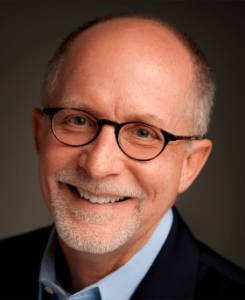A short sentence has echoed through my adult life, and it rings truer now than it did 46 years ago.
“Faith is relationship,” Clint Dunagan told a room full of Hardin-Simmons University freshmen in the spring of 1976. We learned a lot about the Bible in Professor Dunagan’s New Testament class. But nothing influenced my life as much as those three deceptively simple words.
In quiet moments, I hear his voice that morning. I feel the electric pulse that flowed through my brain as the truth of his statement resonated with my spirit. I still see koinonia — the New Testament word for “fellowship” or “community” — written on the chalkboard.

Marv Knox
“Faith is relationship” instantly made sense. At the time, I was 19 years old, a product of small churches in mostly small towns. I could recite the Bible stories my pastor-daddy preached, and I could talk about Baptist beliefs I learned in Training Union (kind of like night-time Sunday school for those of you under, oh, 55). And you bet I could sing dozens of hymns by heart.
But when Dunagan said, “Faith is relationship,” I knew how my faith really had been formed: Through deep friendship with folks in those little churches.
I understood God loved me because I experienced the love of Sunday school teachers, volunteer youth leaders, good-natured deacons and sweet mothers who fried chicken and baked pies for potluck suppers. I realized God loved others, because I saw how church members went out of their way to help people “down on their luck” and wayward souls who should’ve known better. And I witnessed sacrifice by watching hard-working folks who didn’t have much give and give to keep our church going and to send missionaries around the world.
At the time, my worldview was small and my range of experience narrow. Across the ensuing decades, I’ve seen “faith is relationship” demonstrated far from my boyhood home — across the country and around the world. Joyfully, I’ve seen it demonstrated in acts of love and kindness. Sadly, I’ve seen it proved from the negative, when broken relationships undermined and even destroyed faith.
The first people to nurture and strengthen our marriage when Joanna and I moved 800 miles from our families were youngsters our age and older couples in the church we joined. As we raised our daughters, still living far from “home,” our churches became our family. In the nurture of their love and care, our faith prospered and grew.
Across four decades, I worked as a journalist covering the Baptist denomination. I saw faith flourish and multiply when churches and organizations tended to caring relationships built on the love of Jesus. But sadly, I saw faith destroyed when relationships failed.
This happened in once-thriving congregations, where selfishness and division and mistrust gained strength and eventually dominated. On a larger scale, the dark side of relationship — pride, arrogance, bitterness, envy and hatred — blew up the Southern Baptist Convention.
(Side note: The unreported casualties of the SBC schism are the damaged souls of the daughters and sons of countless denominational workers, particularly in the 1980s and ’90s. They watched pious people obliterate their parents’ ministry careers. Small wonder they want nothing to do with God. Hundreds and hundreds of them have left the church.)
“Because we focused on relationships and need, we saw people cross all kinds of geographic, racial, economic and, yes, denominational barriers to love each other and serve others in the name of Jesus.”
Fortunately, I’ve seen “faith is relationship” flourish in ways a kid from small-town Baptist churches never could have dreamed in 1976. For more than four years, I led Fellowship Southwest, an intentionally ecumenical network launched by the Cooperative Baptist Fellowship. Because we focused on relationships and need, we saw people cross all kinds of geographic, racial, economic and, yes, denominational barriers to love each other and serve others in the name of Jesus.
Now I’m retired, and Joanna and I have moved halfway across the country, once again. We’re almost 1,500 miles from that college classroom, and we still realize “faith is relationship.” We crave both — faith and relationship.
Seeking a church home always has been an adventure. But considering this might be our final church home, the quest seems weightier and more stressful than ever before. We enjoy a variety of worship styles. We know we’ll find opportunities for ministry and service to our congregation. But the deepest, hardest issue revolves around fit. We crave community, because we know our faith is tied up in the relationships we will develop.
Now, I might be wrong, but I don’t think I’m delusional. Yes, Joanna and I are lifelong active church members. And because of my career, I’ve seen and analyzed congregations from the inside-out. But I don’t believe our quest to find a church is all that different from any newcomer of any age to your town.
At root, all of us want to find not just a congregation, but a community.
Marv Knox, founder of Fellowship Southwest following a long career in journalism, lives in Durham, N.C.
Related articles:
After spiritual trauma, finding welcome in church once more | Opinion by Mallory Homeyer Herridge
As people walk away from the church in droves, Russ Dean hopes to tell the old story in a new way


